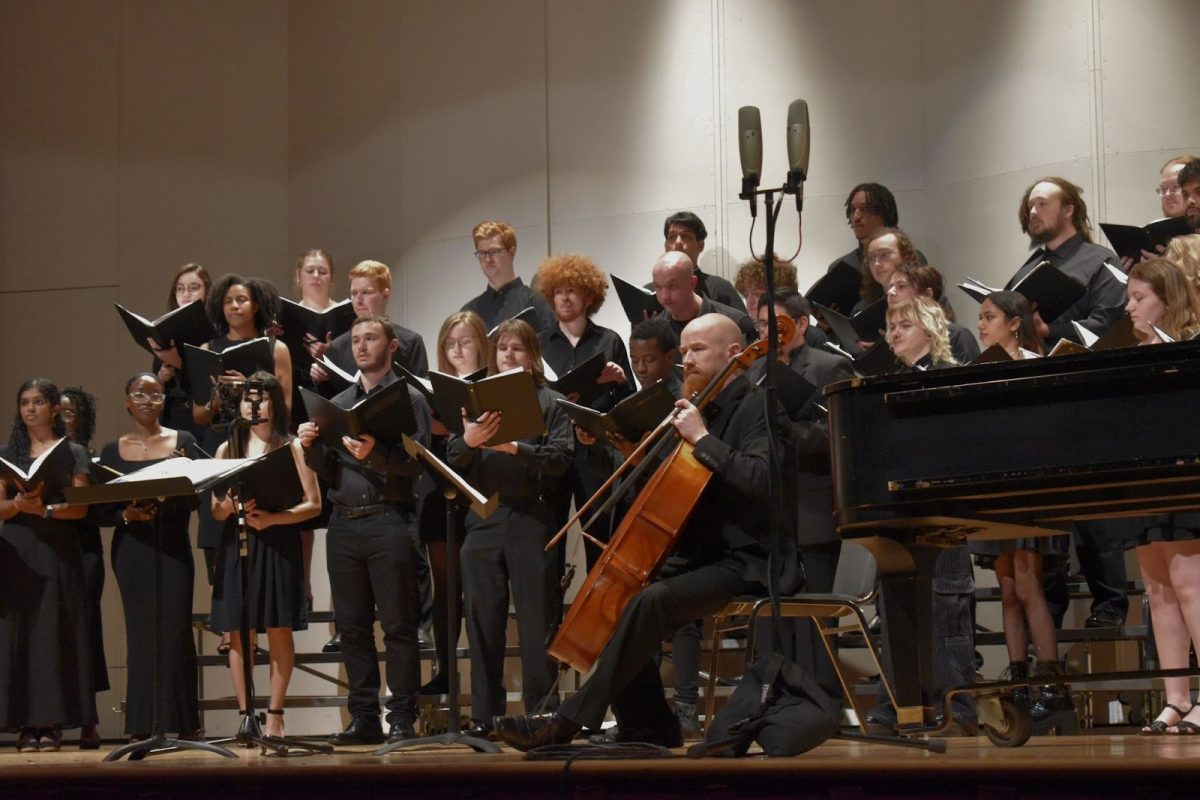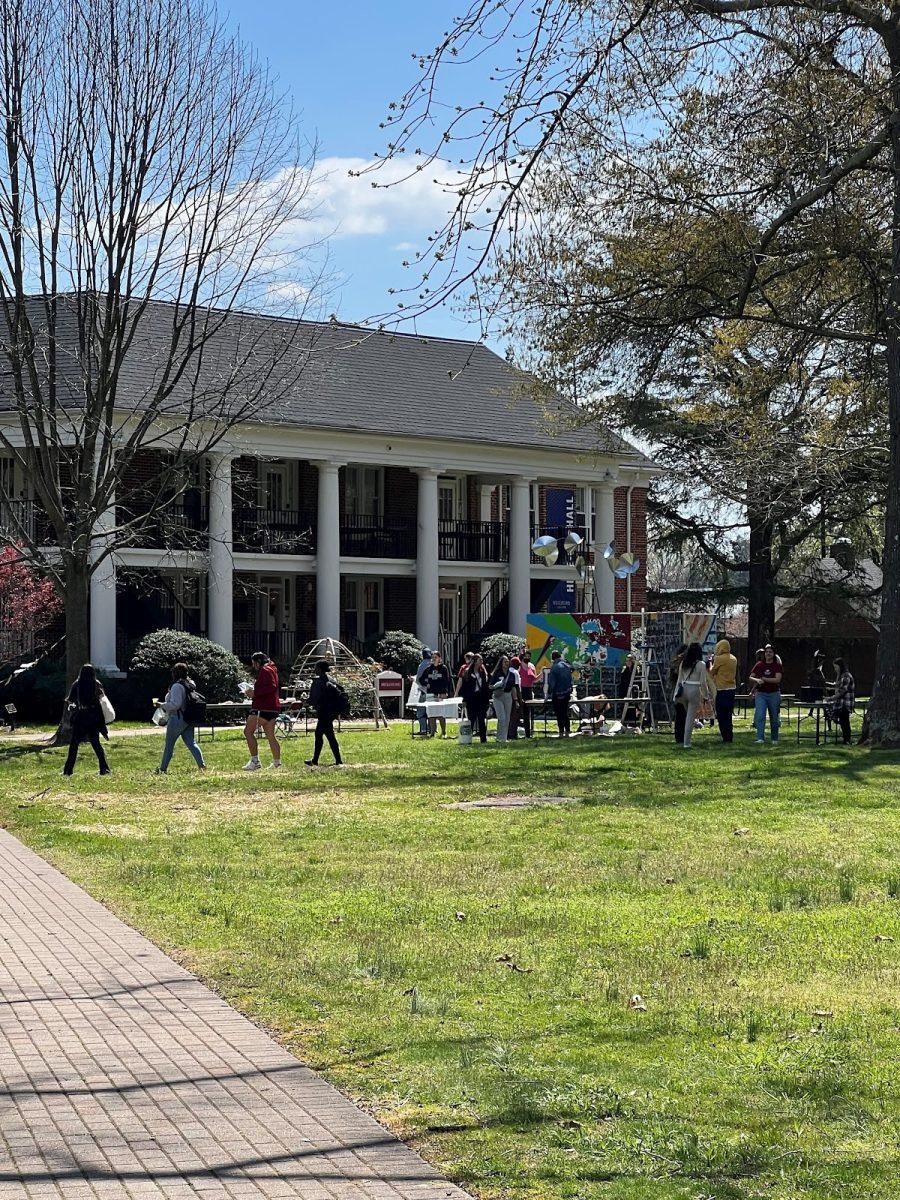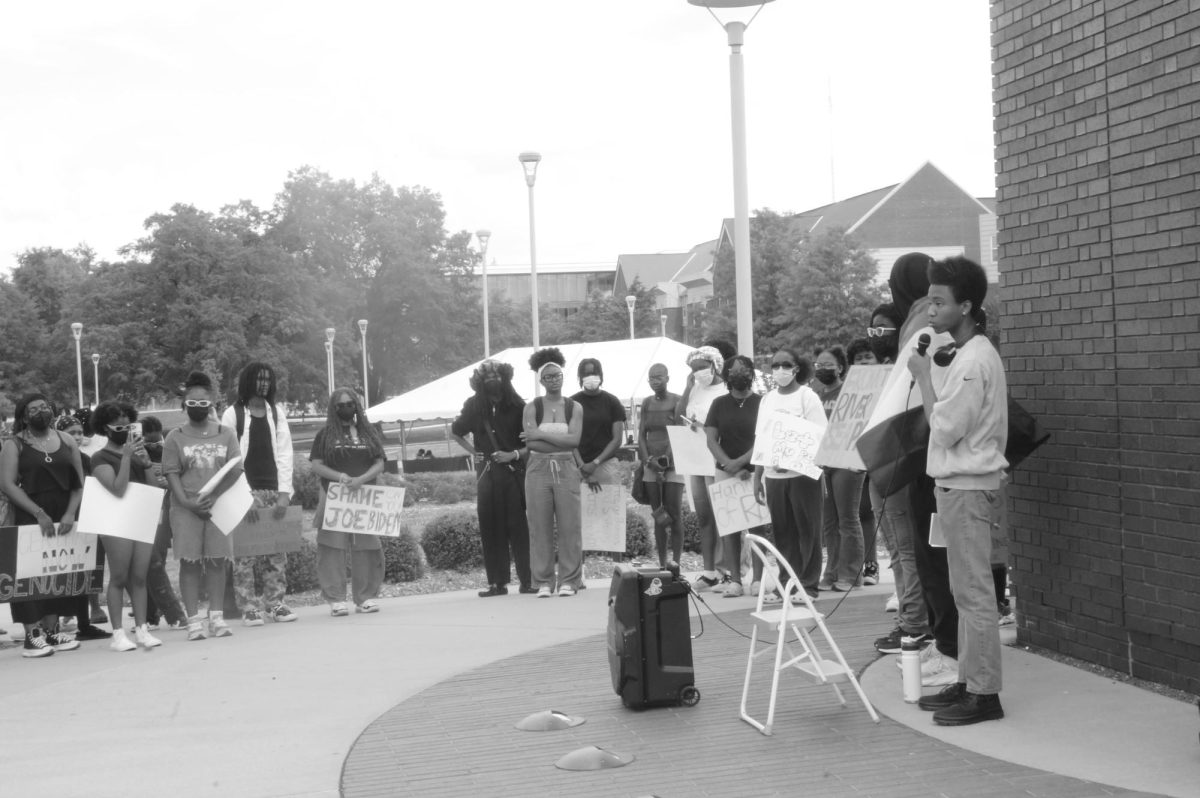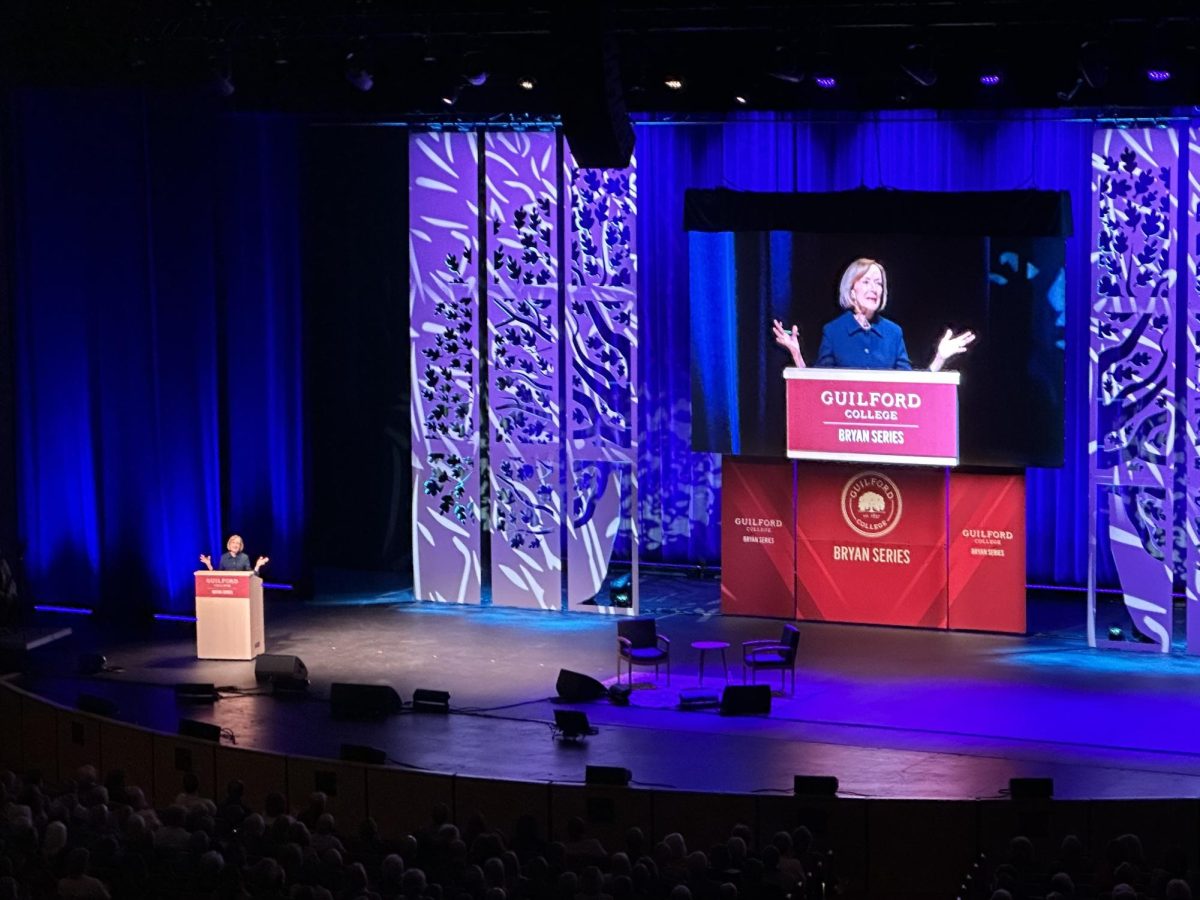“What’s my beat?” asked Emmy Award–winning journalist and documentary producer Steve Sapienza. “My beat is human security.”
Sapienza visited Guilford on Sept. 26 and 27 through the school’s connection with the Pulitzer Center on Crisis Reporting. Last year, along with Wake Forest University and High Point University, Guilford College joined the Pulitzer Center’s Campus Consortium, a program that brings top journalists to the Triad to discuss and raise awareness of underreported global topics.
A former senior producer for “Foreign Exchange with Fareed Zakaria” and recipient of a CINE Golden Eagle and a News & Documentary Emmy, Sapienza spoke to the Journalism class about his approach to video journalism, placing emphasis on avoiding typical news structure and finding a compelling human character on whom to focus.
“(Sapienza) wants to, in a very non-cliche way, make the world a better place through his reporting,” said senior Josh Ballard, journalism class student. “He seemed like he wanted students to do the same, or at least take a good look at the world around them and try to make a difference.”
The following day, Sapienza spoke during a reception and gave an evening presentation in the East Gallery of Founders Hall. He primarily discussed specific issues with Peru’s gold mining.
With gold in high demand and gold prices rising up to $1,800 per ounce, many Peruvians have turned to small-scale gold mining in the Peruvian Amazon. However, it’s not all smiles and profits for those involved in and affected by the activity.
“To produce an ounce of gold, it takes two ounces of mercury,” said Sapienza. “In Madre de Dios, they are extracting 25 tons of gold a year which means 50 tons of mercury is coming into contact with the environment.”
Thousands of miners use mercury to extract gold from the soil. When they have an amalgam of gold and mercury, they take it to gold shops where shop owners cook off the mercury and release mercury vapors into the atmosphere. This harms not only the environment but also the health of many locals.
“I talked to these miners who mix mercury and gold with their bare hands and feet,” said Sapienza. “When I asked them if they were worried about their health, they said that it was only bad for pregnant women.”
Local governors have attempted to shut down illegal mining businesses and enact stricter laws. Rather than complying with the authorities, miners have revolted, taken over towns, and terrorized townspeople.
“I met the local governor in this big, new, beautiful building that was built to welcome tourists,” said Sapienza. “It turns out that the local governor and government had to move into that building because the small-scale miners had burned down the government’s building two years before.”
Sapienza has documented a wide range of other human security stories, including labor in the Thai shrimp industry and child soldiers in Sierra Leone. Many of his stories have been featured on PBS NewsHour and have garnered public attention.
“Steve has had some incredible experiences covering important news in many countries,” said Ty Buckner, associate vice president for communications and marketing. “A lot of his work deals with social justice issues, which made his reporting particularly interesting. I’m looking forward to seeing more of Steve’s work on television and online in the future.”
Sapienza is currently working on a documentary called “Easy Like Water,” which is about the impact of climate change in Bangladesh.
“If I’ve done my job correctly, it’s going to be quite clear what the audience needs to do,” Sapienza said. “You don’t need to tell them exactly what to do. You just need to show them the problem and most will figure out what they have to do in order to help change the situation.”












